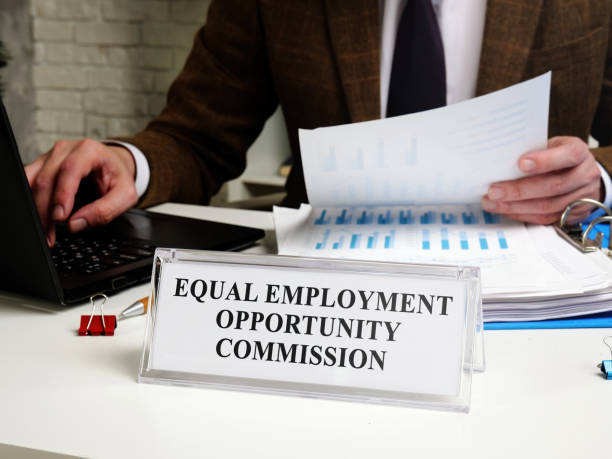With states coming in terms of workplace adaption of medical marijuana, there have been certain changes in the legalization of marijuana following its implementation at the workplace in the year 2020. From the days of “Just Say No,” the majority of states in the United States have legalized medical, if not recreational, marijuana. Many of these states also have anti-discrimination provisions protecting the employment of cannabis users. Even federal contractors are not necessarily exempt from these state protections. As such, all employers must be aware of the impact of these laws on their workplaces. This webinar unveils the latest updates affecting the legal aspect of marijuana consumption at the workplace in the year 2020.
WHY SHOULD YOU ATTEND?
This program will provide oversight of the current status of federal and state law, explore the case law that is changing the face of marijuana in our workplace in 2020, and provide key tools for addressing the challenges of cannabis and its users in the work environment.
AREA COVERED
- Overview of federal laws and bills on cannabis in 2020
- Legal discussion on:
- CSA
- ADA
- FMLA
- State Medical cannabis laws (MMAs)
- State recreational cannabis laws and updates in 2020
- State Laws Against Discrimination (LADs)
- Common-law privacy concerns for the year 2020
- Workplace policy considerations
- Drug testing policy considerations
- Best practices
LEARNING OBJECTIVES
- Understanding federal laws
- Understanding the possibilities of changes in the law in 2020
- Understanding state law, including the:
- Legalization of cannabis
- Anti-discrimination laws
- Exploring the case law that is changing our perspectives of drugs and the workplace, including implicitly protected classes and drug-free workplaces
- Discussion about the differences between legal and illegal cannabis use in workplace policies and procedures
- Addressing common law privacy concerns
- Key tools on best practices:
- Workplace drug and alcohol policies
- Drug testing systems
- Other related policies and changes in 2020
WHO WILL BENEFIT?
- HR
- CEO
- Managers
This program will provide oversight of the current status of federal and state law, explore the case law that is changing the face of marijuana in our workplace in 2020, and provide key tools for addressing the challenges of cannabis and its users in the work environment.
- Overview of federal laws and bills on cannabis in 2020
- Legal discussion on:
- CSA
- ADA
- FMLA
- State Medical cannabis laws (MMAs)
- State recreational cannabis laws and updates in 2020
- State Laws Against Discrimination (LADs)
- Common-law privacy concerns for the year 2020
- Workplace policy considerations
- Drug testing policy considerations
- Best practices
- Understanding federal laws
- Understanding the possibilities of changes in the law in 2020
- Understanding state law, including the:
- Legalization of cannabis
- Anti-discrimination laws
- Exploring the case law that is changing our perspectives of drugs and the workplace, including implicitly protected classes and drug-free workplaces
- Discussion about the differences between legal and illegal cannabis use in workplace policies and procedures
- Addressing common law privacy concerns
- Key tools on best practices:
- Workplace drug and alcohol policies
- Drug testing systems
- Other related policies and changes in 2020
- HR
- CEO
- Managers
Speaker Profile
 Deirdre Kamber Todd
Deirdre Kamber Todd
Deirdre Kamber Todd, Esq., is a partner with The Kamber Law Group, P.C., a next-generation law firm located in Allentown, Pennsylvania. With fifteen years of experience, Deirdre focuses her practice on labor and employment law, social media and technology law, HIPAA, and business law. Specific areas of her employment law practice include discrimination, wage and hour, restrictive covenants, business contracts, unemployment compensation, LGBT issues, labor disputes, FMLA, military leave, social media litigation, information privacy and technology, agency compliance, and medical record privacy. Her clients include companies, non-profits, governmental entities, and individuals. Her work includes consultative and legal services, from outsourced HR …
Upcoming Webinars

California Meal and Rest Breaks: What You Dont Know Can Cos…

Responding to EEOC Discrimination Charges-What's Your Busin…

Implementing an Effective Human Error Reduction Program


Conflict Resolution - Prevent, De-escalate, Resolve

When Employees Travel: Wage and Expense Rules Employers Mus…

With Mandatory Paid Leave Gaining Ground Is It Time To Do A…

Female to Female Hostility @Workplace: All you Need to Know

Form 1099-MISC and 1099-NEC Compliance Update 2024

Validation Statistics for Non-Statisticians

The Totally Organized Professional Is All About Outcomes

Why EBITDA Doesn't Spell Cash Flow and What Does

GAMP5, Second Edition and Alignment with Computer Software …

Project Management for Non-Project Managers - Scheduling yo…

Sunshine Act Reporting - Clarification for Clinical Research

Understanding the Math of HR… So You Can Show How HR Impact…

FFIEC BSA/AML Examination Manual: What Compliance Officers …

How to Address ISO's New Climate Change Requirements

I-9 Audits: Strengthening Your Immigration Compliance Strat…


Re-imagine Finance & Accounting Made Simple. Three Webinars…

Stay Interviews: A Powerful and Low-Cost Employee Engagemen…


How To Conduct An Internal Harassment And Bullying Investig…


Effective Onboarding: How to Welcome, Engage, and Retain Ne…

Managing Toxic & Other Employees Who Have Attitude Issues


Analytical Method Validation Under Good Laboratory Practic…

Do's and Don'ts of Documenting Employee Behaviour, Performa…

Do's and Don'ts of Giving Effective Feedback for Performanc…

Onboarding New Hires: Leverage the Potential of Artificial …

Project Management for HR, Administrative Professionals, an…

Tattoos, hijabs, piercings, and pink hair: The challenges …

Using Behavior Based Interviewing for Finding the Best Matc…

How to Document Employee Discussions and Why it is Important

Stressed Out: How to Handle Conflict, Difficult People and …

Harassment, Bullying, Gossip, Confrontational and Disruptiv…

Best Practices for Working With Vendors and Suppliers

Understanding the Artificial Intelligence Landscape

Marketing to Medicare or Medicaid Beneficiaries - What You …

Accounting For Non Accountants : Debit, Credits And Financi…

Principles & Practices for the Cybersecurity of Legacy Medi…

Independent Contractor vs. Employee New Rule Issued by The …

Ultimate Persuasion Strategies! - Secret Influence Tools & …

Kicking your Employee Retention Efforts into Overdrive: Sta…
